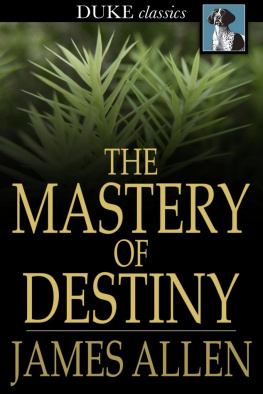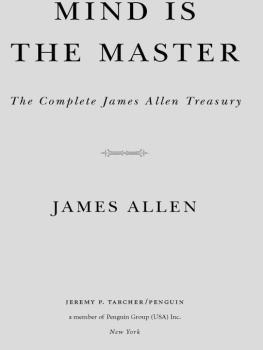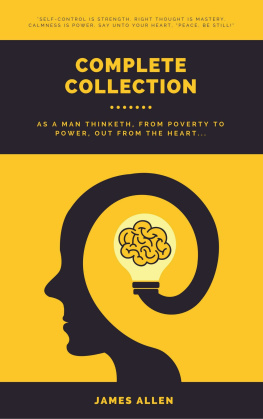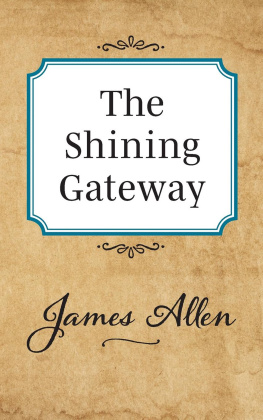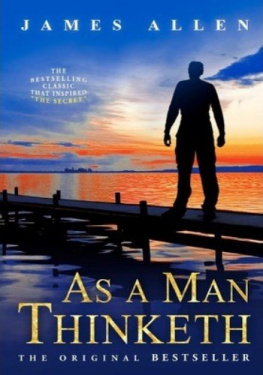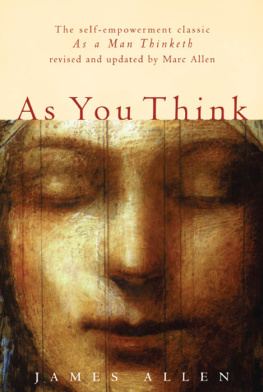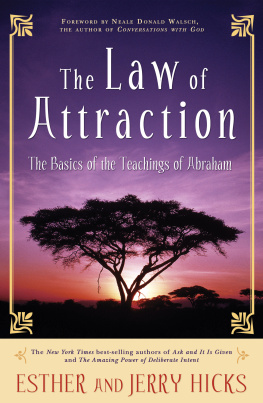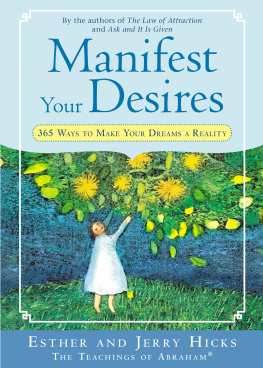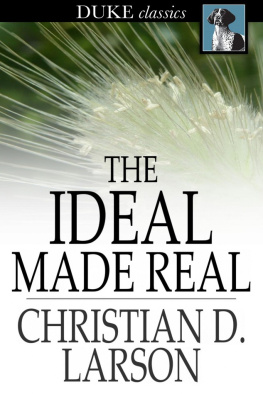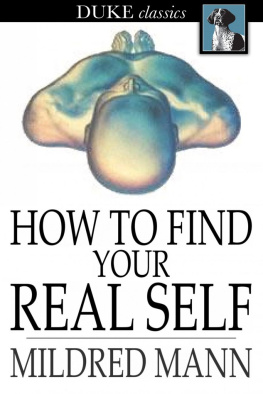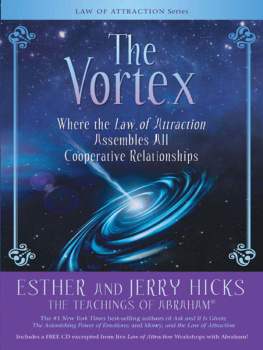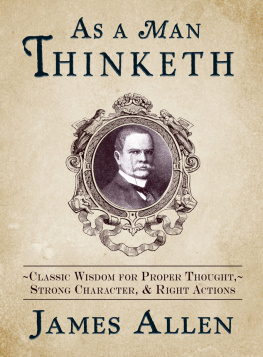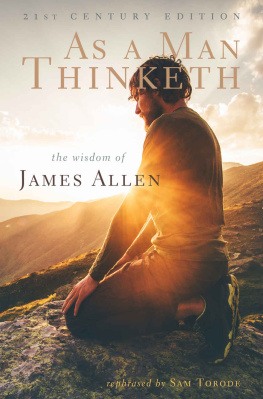James Allen - The Mastery of Destiny
Here you can read online James Allen - The Mastery of Destiny full text of the book (entire story) in english for free. Download pdf and epub, get meaning, cover and reviews about this ebook. publisher: Duke Classics, genre: Science. Description of the work, (preface) as well as reviews are available. Best literature library LitArk.com created for fans of good reading and offers a wide selection of genres:
Romance novel
Science fiction
Adventure
Detective
Science
History
Home and family
Prose
Art
Politics
Computer
Non-fiction
Religion
Business
Children
Humor
Choose a favorite category and find really read worthwhile books. Enjoy immersion in the world of imagination, feel the emotions of the characters or learn something new for yourself, make an fascinating discovery.
- Book:The Mastery of Destiny
- Author:
- Publisher:Duke Classics
- Genre:
- Rating:5 / 5
- Favourites:Add to favourites
- Your mark:
- 100
- 1
- 2
- 3
- 4
- 5
The Mastery of Destiny: summary, description and annotation
We offer to read an annotation, description, summary or preface (depends on what the author of the book "The Mastery of Destiny" wrote himself). If you haven't found the necessary information about the book — write in the comments, we will try to find it.
The Mastery of Destiny embodies New Thought writer James Allens teachings that our thoughts can be used to increase our capabilities and to create our lives as we desire them to be. Allens ideas and ideals and those of others in the New Thought Movement have seen a resurgence with the release of the bestselling book and film The Secret and the popularity of the Jerry and Esther Hicks Abraham Teachings.
The Mastery of Destiny — read online for free the complete book (whole text) full work
Below is the text of the book, divided by pages. System saving the place of the last page read, allows you to conveniently read the book "The Mastery of Destiny" online for free, without having to search again every time where you left off. Put a bookmark, and you can go to the page where you finished reading at any time.
Font size:
Interval:
Bookmark:

From a 1909 edition
ISBN 978-1-62011-539-8
Duke Classics
2012 Duke Classics and its licensors. All rights reserved.
While every effort has been used to ensure the accuracy and reliability of the information contained in this edition, Duke Classics does not assume liability or responsibility for any errors or omissions in this book. Duke Classics does not accept responsibility for loss suffered as a result of reliance upon the accuracy or currency of information contained in this book.
There is, and always has been, a widespread belief in Fate, or Destiny, that is, in an eternal and inscrutable Power which apportions definite ends to both individuals and nations. This belief has arisen from long observation of the facts of life. Men are conscious that there are certain occurrences which they cannot control, and are powerless to avert. Birth and death, for instance, are inevitable, and many of the incidents of life appear equally inevitable. Men strain every nerve for the attainment of certain ends, and gradually they become conscious of a Power which seems to be not of themselves, which frustrates their puny efforts, and laughs, as it were, at their fruitless striving and struggle. As men advance in life, they learn to submit, more or less, to this overruling Power which they do not understand, perceiving only its effects in themselves and the world around them, and they call it by various names, such as God, Providence, Fate, Destiny, etc.
Men of contemplation, such as poets and philosophers, step aside, as it were, to watch the movements of this mysterious Power as it seems to elevate its favorites on the one hand, and strike down its victims on the other, without reference to merit or demerit. The greatest poets, especially the dramatic poets, represent this Power in their works, as they have observed it in Nature. The Greek and Roman dramatists usually depict their heroes as having foreknowledge of their fate, and taking means to escape it; but by so doing they blindly involve themselves in a series of consequences which bring about the doom which they are trying to avert. Shakespeare's characters, on the other hand, are represented, as in Nature, with no foreknowledge (except in the form of presentiment) of their particular destiny. Thus, according to the poets, whether the man knows his fate or not, he cannot avert it, and every conscious or unconscious act of his is a step towards it.
Omar Khayyam's Moving Finger is a vivid expression of this idea of Fate:
"The Moving Finger writes, and having writ,
Moves on: nor all thy Piety nor Wit
Shall lure it back to cancel half a line,
Nor all thy Tears wash out a Word of it."
Thus, men in all nations and times have experienced in their lives the action of this invincible Power or Law, and in our nation today this experience has been crystallized in the terse proverb, "Man proposes, God disposes."
But, contradictory as it may appear, there is an equally widespread belief in man's responsibility as a free agent.
All moral teaching is an affirmation of man's freedom to choose his course and mold his destiny: and man's patient and untiring efforts in achieving his ends are declarations of consciousness of freedom and power. This dual experience of fate on the one hand, and freedom on the other, has given rise to the interminable controversy between the believers in Fatalism and the upholders of free will a controversy which was recently revived under the term "Determinism versus Freewill." Between apparently conflicting extremes there is always a "middle way" of balance, justice, or compensation which, while it includes both extremes, cannot be said to be either one or the other, and which brings both into harmony; and this middle way is the point of contact between two extremes. Truth cannot be a partisan, but, by its nature, is the Reconciler of extremes; and so, in the matter which we are considering, there is a "golden mean" which brings Fate and Free will into close relationship, wherein, indeed, it is seen that these two indisputable facts in human life, for such they are, are but two aspects of one central law, one unifying and all - embracing principle, namely, the law of causation in itsmoral aspect.
Moral causation necessitates both Fate and Free will, both individual responsibility and individual predestination, for the law of causes must also be the law of effects, and cause and effect must always be equal; the train of causation, both in matter and mind, must be eternally balanced, therefore eternally just, eternally perfect. Thus every effect may be said to be a thing preordained, but the predetermining power is a cause, and not the fiat of an arbitrary will.
Man finds himself involved in the train of causation. His life is made up of causes and effects. It is both a sowing and a reaping. Each act of his is a cause which must be balanced by its effects. He chooses the cause (this is Free will), he cannot choose, alter, or avert the effect (this is Fate); thus Free will stands for the power to initiate causes, and destiny is involvement in effects. It is therefore true that man is predestined to certain ends, but he himself has (though he knows it not) issued the mandate; that good or evil thing from which there is no escape, he has, by his own deeds, brought about.
It may here be urged that man is not responsible for his deeds, that these are the effects of his character, and that he is not responsible for the character, good or bad, which was given him at his birth. If character was "given him" at birth, this would be true, and there would then be no moral law, and no need for moral teaching; but characters are not given ready made, they are evolved; they are, indeed, effects, the products of the moral law itself, that is the products of deeds. Character result of an accumulation of deeds which have been piled up, so to speak, by the individual during his life.
Man is the doer of his own deeds; as such he is the maker of his own character; and as the doer of his deeds and the maker of his character, he is the molder and shaper of his destiny. He has the power to modify and alter his deeds, and every time he acts he modifies his character, and with the modification of his character for good or evil, he is predetermining for himself new destinies destinies disastrous or beneficent in accordance with the nature of his deeds. Character is destiny itself; as a fixed combination of deeds, it bears within itself the results of those deeds. These results lie hidden as moral seeds in the dark recesses of the character, awaiting their season of germination, growth, and fruitage.
Those things which befall a man are the reflections of himself; that destiny which pursued him, which he was powerless to escape by effort, or avert by prayer, was the relentless ghoul of his own wrong deeds demanding and enforcing restitution; those blessings and curses which come to him unbidden are the reverberating echoes of the sounds which he himself sent forth.
It is this knowledge of the Perfect Law working through and above all things; of the Perfect Justice operating in and adjusting all human affairs, that enables the good man to love his enemies, and to rise above all hatred, resentment, and complaining; for he knows that only his own can come to him, and that, though he be surrounded by persecutors, his enemies are but the blind instruments of a faultless retribution; and so be blames them not, but calmly receives his accounts, and patiently pays his moral debts.
Font size:
Interval:
Bookmark:
Similar books «The Mastery of Destiny»
Look at similar books to The Mastery of Destiny. We have selected literature similar in name and meaning in the hope of providing readers with more options to find new, interesting, not yet read works.
Discussion, reviews of the book The Mastery of Destiny and just readers' own opinions. Leave your comments, write what you think about the work, its meaning or the main characters. Specify what exactly you liked and what you didn't like, and why you think so.

